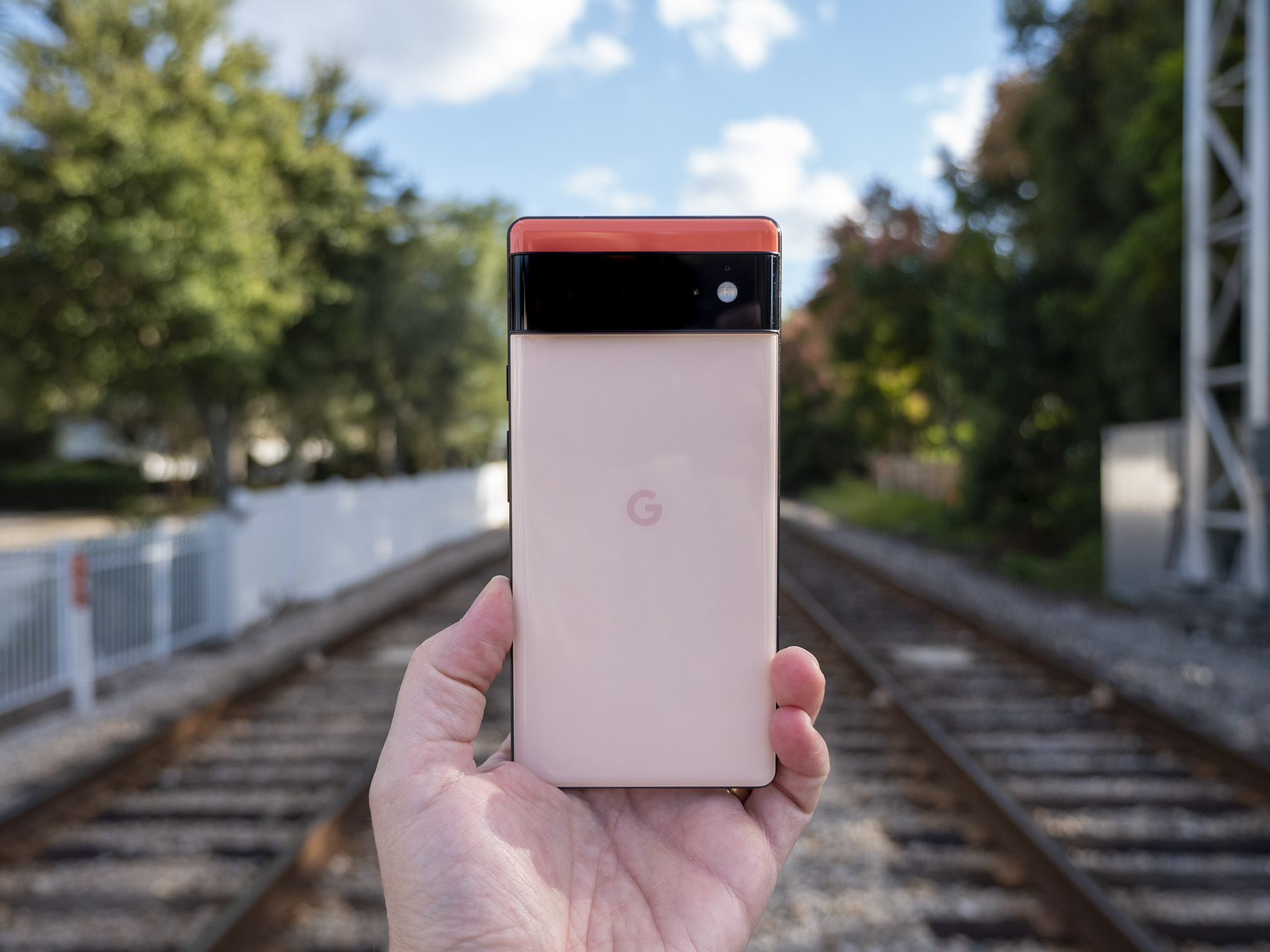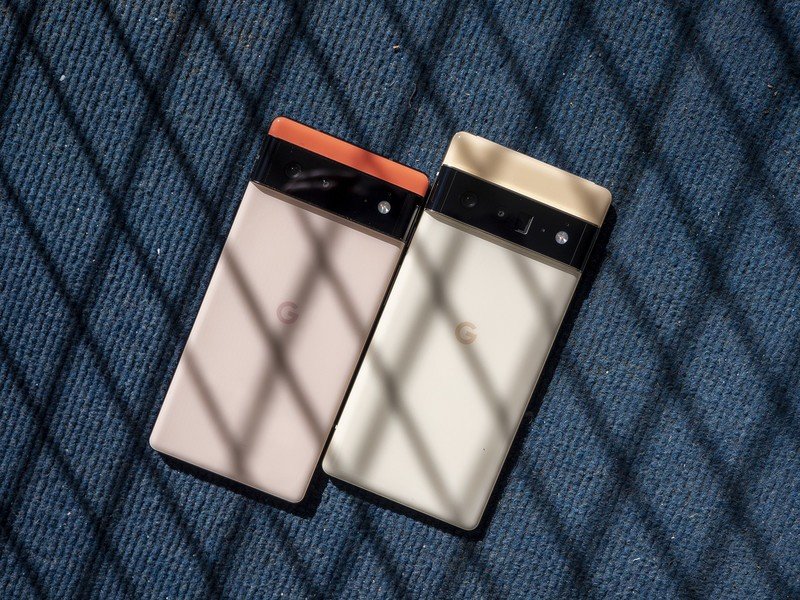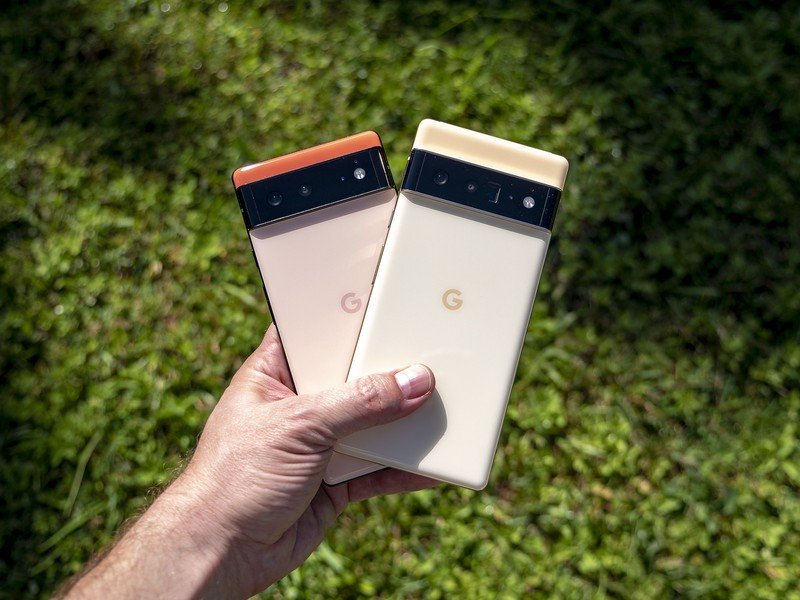Google got the Pixel price right, but it needs a heavy hand with marketing

Google nailed its pricing strategy with its latest flagship phones, the Pixel 6 and Pixel 6 Pro, according to industry analysts. They add that the tech giant has a unique opportunity to undercut some of the best Android phones in the market, but that it still has a ways to go to "improve distribution compared to the Pixels of the past."
The tech giant announced on October 19 that the new phones would be powered by its first-ever in-house system-on-a-chip, Google Tensor. The Pixel 6 starts at $599, while the 6 Pro starts at $899. Both phones can be purchased unlocked at physical or online Google stores and major retailers like Best Buy and Amazon. Both phones are also available through all carriers in the U.S., where prices may differ.
By comparison, Samsung's latest Galaxy Fold 3 and Flip 3 cost $1,799 and $999, respectively, and the Galaxy S21 starts at $799. Meanwhile, Apple's iPhone 13 starts at $799 and the 13 Pro at $999.
In their brief Pixel 6 and Pixel 6 Pro hands-on with both phones just prior to launch, Android Central's Nick Sutrich and Ara Wagoner both agreed that they showed significant improvement over the previous three generations of Pixels, writing that the Pixel 6 and Pixel 6 Pro could become some of the best Android phones out there. Reviews for both phones are coming soon to AC.
Experts are convinced that Google is trying its best to hit the mainstream. With low pricing and an eye-catching design, the new Pixels are meant to challenge Apple and Samsung head-on.
It's strategic: Google is targeting Apple and Samsung

Jitesh Ubrani, IDC's research manager of worldwide device trackers, told Android Central that Google had been the underdog in the smartphone market compared to heavyweights like Samsung and Apple. As a result, he says Google has to be competitive in pricing, and that's exactly what it's doing.
"In a market where $1,000 flagships are the norm, Google is offering great value in hopes of steering customers away from the incumbents," Ubrani says.
Be an expert in 5 minutes
Get the latest news from Android Central, your trusted companion in the world of Android
Part of the reason Google is making this move, Ubrani explains, is because the company still "doesn't have the same pull that Apple and Samsung do when it comes to smartphones."
Looking ahead, the smartphone market is expected to grow in the mid-to-premium segment ($400 to $1,000). However, this growth wouldn't be driven by Google's Pixels, but rather by Apple, Samsung, Oppo, Xiaomi, and other competitors, Ubrani adds.
"In a market where $1,000 flagships are the norm, Google is offering great value in hopes of steering customers away from the incumbents," Jitesh Ubrani says.
Mishaal Rahman, senior technical editor at Esper and former editor-in-chief of XDA Developers, agrees, adding it was surprising to see how low and aggressive Google priced its new phone series.
"The Pixel 6 Pro, likewise, undercuts the Galaxy S21+ and iPhone 13 Pro by $100," Rahman says. "These prices will certainly make informed customers think twice before purchasing the latest Samsung or Apple device."
He notes that Google was very strategic in pricing and that the company was able to identify the areas and components where it could scale back to tier its new product line.
"The $599 base price of the Pixel 6 was likely an incredibly important number to hit, and I'm certain that Google deliberated extensively on how to reach that figure," Rahman says. "Using a rigid OLED panel versus a flexible one, leaving out the UWB radio, opting for a standard LTPS FHD+ 90Hz OLED panel instead of the more premium LTPO QHD+ 120Hz OLED panel in the Pro, no mmWave antennas, etc., were all sensible compromises to lower the price of the base model."
Is the Google Pixel 6 the new OnePlus?

For a while now, many people in the smartphone community have started wondering if Google will become the next OnePlus, in which the company will become the flagship killer.
OnePlus was touted as an enthusiast phone because of its software experience, writes AC's Andrew Myrick. He says with the release of the OnePlus One, OnePlus 2, and OnePlus 3T, the company was holding true to its moniker, "Never Settle," though as the years went on, it was evident that OnePlus was trying to go after bigger fish. This was very evident in its more recent releases.
Myrick's article goes on to say that because Google is approaching the Pixel 6 line up differently, with Android 12 and what Material You will bring, coupled with a unique in-house designed chip, it's possible that it could fill the void left by OnePlus. IDC's Ubrani agrees.
"Google is very well positioned to pick up where OnePlus left off. Not only do they have the competitive pricing, they also have a strong and vocal community," he says. "However, Google does have more going for them as they have an entire ecosystem that includes multiple products and services, which OnePlus lacked back in the day. Google is also trying to appeal to the enterprise audience with added security features in the Pixel and Android 12."
Pixel 6 pricing is what OnePlus 9 pricing should have been #Pixel6LaunchPixel 6 pricing is what OnePlus 9 pricing should have been #Pixel6Launch— Jitesh Ubrani (@JiteshUbrani) October 19, 2021October 19, 2021
However, Rahman doesn't think that's the case. He notes that from the get-go, Google's phones have never really been priced as "flagship killers" as OnePlus has done with its phones.
"Google's Pixel phones have never been priced like 'flagship-killers,' or affordable flagships if you will," Mishaal Rahman says.
"Google's Pixel phones have never been priced like 'flagship-killers,' or affordable flagships if you will," Rahman says. "While they've never broken the $1,000 barrier until the 512GB Pixel 6 Pro this year, they've always been priced well above the affordable flagships from the likes of Xiaomi and Realme, among others."
But in the U.S., where Samsung dominates and OnePlus is gaining ground, Google is in a unique position to undercut some of its best phones they offer. For example, the OnePlus 9 launched at $729 compared to the Pixel 6 at $599. The OnePlus 9 Pro originally launched for $1,069, but is now priced at $969 on OnePlus' website, which is still priced above the Pixel 6 Pro.
However, very similar to OnePlus and its "Never Settle" cult-following, it's no surprise that Google is taking advantage of the moment and connecting more with their community of "Pixel Superfans," which have been around since late 2019, according to Anshel Sag, senior analyst at Moor Insights & Strategy.
"Google has catered to this community for a while, but the company does seem to be ramping up its efforts to build a bigger and stronger community," he says, adding that just because of this, it doesn't fully liken the company to OnePlus.
Sag also notes that Google wants the Pixels to be differentiated from the rest of Android phones.
"I think the only similarities between Google and OnePlus are that both of them were initially seen as relative underdogs in the smartphone market," he says.
Google is limiting its market focus, and that's bad

AC's Harish Jonnalagadda writes in his latest article that "if Google were really serious about hardware, this would have been the ideal time to make a global push and launch the Pixel 6 series in most international markets." And we know Google confirmed that it won't be able to make its latest Pixel phones available in India "due to a variety of factors including global demand-supply issues."
Jonnalagadda notes that part of the reason Google is limiting where it's going to expand sales of the new Pixel lineup is that the company wants to focus more on countries with carrier channels. Rahman adds that this is where Google will need to work hard to see success.
"In the U.S., retail stores and carrier partnerships are still the keys to success, which is how a brand like OnePlus was able to gain a foothold in the country," Rahman says.
OnePlus, for example, has benefited from its recent carrier partnership with T-Mobile and the introduction of the budget-focused Nord N10, N100, and N200 5G. Counterpoint Research cites that "Motorola and OnePlus were big gainers in Q2, capitalizing on LG's weakness, especially in prepaid channels."
So perhaps it's essential that Google not only focuses on carrier channels, but also ramps up its marketing focus, Ubrani adds.
"If Google truly wants to entice customers, they will have to significantly ramp up their marketing efforts and improve distribution compared to Pixels of the past," he says.
Carmi Levy, a technology analyst, says because the Pixel has been sold in relatively few markets globally, it's hard to directly compare Google's market prospects against global competitors like Apple and Samsung.
"With an initial rollout that includes only nine countries, Google isn't exactly going to challenge Apple and Samsung for planet-wide dominance any time soon," he says. "Google's tendency to thin out its marketing efforts later on in the device lifecycle won't do its Pixel 6 units any favors either."
Google's pricing isn't going to create a standard for the future, yet

Levy goes on to say that with the Pixel 6, Google is once again serious about gaining eminence and momentum in securing a spot in the mainstream market.
"But the Pixel 7, 8, and beyond will have to build on this foundation if Google ever hopes to realistically crack the Apple/Samsung duopoly," he says.
Sag notes that it's a bit too early to say if Google's pricing will set a standard and tone in the smartphone market. He says it's possible, but it will only become a reality if the Pixel 6 is "considered a success both from a performance perspective as well as a sales perspective."
But it's worth mentioning that Samsung has been slowly reducing its own flagship prices in recent years. The Galaxy S21, while more expensive than the Pixel 6, costs $200 less than the Galaxy S20 at $799.
When it comes to software, Google has become a trendsetter, Rahman says, but it's still not a market leader in phone sales.
"So while I think every phone maker is certainly keeping an eye out on the sales performance of this generation, I think it's too early to say if Google will move the market in any meaningful way," Rahman says.
Have you listened to this week's Android Central Podcast?

Every week, the Android Central Podcast brings you the latest tech news, analysis and hot takes, with familiar co-hosts and special guests.

Shruti Shekar is Android Central's Editor-in-Chief. She was born in India, brought up in Singapore, but now lives in Toronto. She started her journalism career as a political reporter in Ottawa, Canada's capital, and then made her foray into tech journalism at MobileSyrup and most recently at Yahoo Finance Canada. When work isn't on her mind, she loves working out, reading, watching the Raptors, and planning what she's going to eat the next day.
